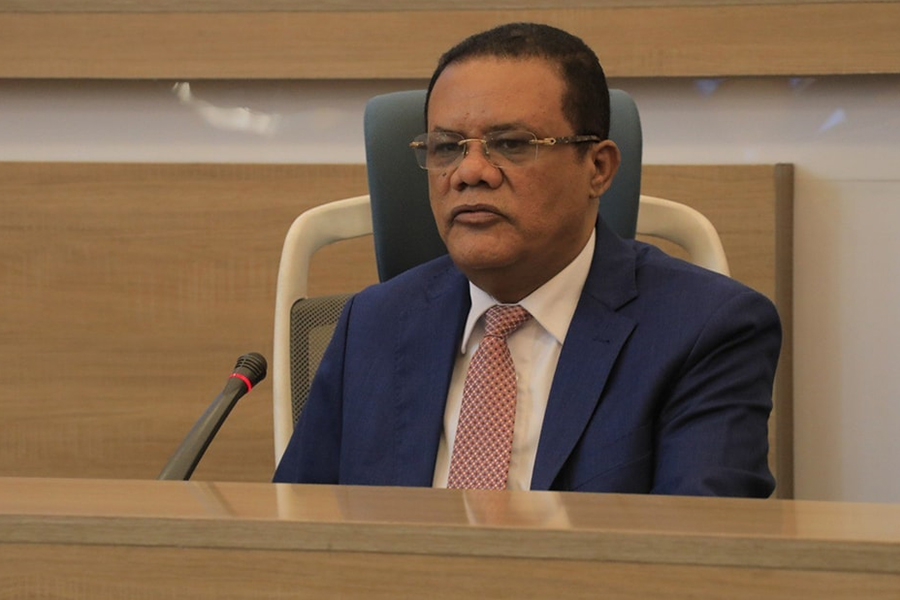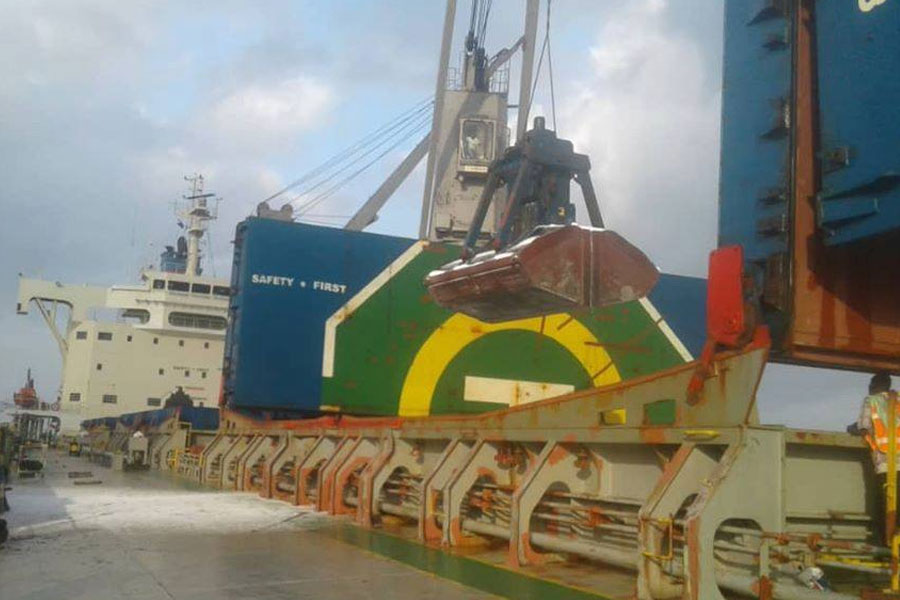
Radar | May 17,2025
Apr 16 , 2022
By Tigist Solomon
There were around 281 million international migrants in the world in 2020, according to International Organisation for Migration (IOM). The phenomenon is significant within sub-Saharan Africa as well, with around 21 million documented people living in other African countries. Migration to the Middle East, Europe and North America from sub-Saharan Africa though has received the most research attention.
There is an equal number of immigrants and emigrants around the world, according to Migration Data Portal. Based on IOM data, there were 281 million emigrants and immigrants in 2020. Nevertheless, existing research and studies on migration emphasise immigrants, those who arrive in the new destination in search of settlement opportunities. Very limited investigations have included the situation of emigrants in their studies.
To fully understand the situation and conditions of migration, detailed studies of the origin of migration from the country of departure are essential. The living conditions of emigrants from their place of origin is key to discuss and analyse before any research on immigration and immigrants can be done. Migration is the result of both emigration and immigration. The former is essential in the migratory process to access the immigration phase and be considered an immigrant.
Unfortunately, most of the existing studies describe the negative impacts of migration on destination countries where issues such as employment, access to health and the overall economic situation of the host country are analysed. Additionally, the researchers pronounce the adverse outcomes of migration by examining the role of smugglers and traffickers on migrants and the hostile experience of migrants during the migration process and after arrival at the new destination.
Topics such as border security and protection as well as the economic and social integration of migrants are major topics of discussion for politicians and governments. These subjects are indeed used during presidential elections to obtain more votes from voters. Former presidents such as Donald Trump in the United States, Nicolas Sarkozy in France and Silvio Berlusconi in Italy had made migration and immigration a central topic in their debates.
They had, in fact, captured the attention of most voters and thus did well in their elections. Similarly, the member states of the European Union (EU), as well as the United Arab Emirates (UAE), have used migration policies and regulations as a key topic of discussion to accentuate their unification. Border protection issues receive more attention than any other topic when developing trade union policies and rules of governance.
A comprehensive understanding of migrants is needed by looking at the initial emigration phase. Migration researchers, including researchers from sub-Saharan Africa, Latin America, and Asia, are doing a disservice to the phenomenon by focusing more on immigration. They appear to be advocates of destination countries and thus fail to properly analyse and understand the real-life experience of those who choose to migrate and are at the emigration phase.
No less alarming with migration studies is that most research, including those conducted by African scholars, is funded or co-funded by western foundations and institutions. Thus, the research has an obligation to satisfy the demand of donors by meeting their needs and expectations. As a result, most African migration scholars tend to focus on smugglers, illegal migration and all the negative experiences that result from the phenomenon rather than highlighting some of the positive outcomes.
In fact, minimal research has been conducted to demonstrate the positive experiences associated with migration from sub-Saharan countries. A good balance and a fair observation of the migration situation from different angles using a rational assessment is necessary when conducting research on any subject, including migration.
African migration researchers should keep a watchful eye on this situation and pay attention to the self-interest of donors. Instead of focusing only on traffickers and smugglers, it is essential to understand the situation during the emigration phase and find ways to address the push factors.
PUBLISHED ON
Apr 16,2022 [ VOL
23 , NO
1146]


Radar | May 17,2025

Life Matters | Jun 14,2025

Editorial | May 23,2021

Fortune News | Apr 10,2021

Viewpoints | Nov 18,2023

Radar | Feb 25,2023

Viewpoints | Sep 21,2019

Commentaries | Jul 24,2021

Life Matters | Aug 31,2019

My Opinion | May 06,2023

My Opinion | 131584 Views | Aug 14,2021

My Opinion | 127940 Views | Aug 21,2021

My Opinion | 125915 Views | Sep 10,2021

My Opinion | 123539 Views | Aug 07,2021

Dec 22 , 2024 . By TIZITA SHEWAFERAW
Charged with transforming colossal state-owned enterprises into modern and competitiv...

Aug 18 , 2024 . By AKSAH ITALO
Although predictable Yonas Zerihun's job in the ride-hailing service is not immune to...

Jul 28 , 2024 . By TIZITA SHEWAFERAW
Unhabitual, perhaps too many, Samuel Gebreyohannes, 38, used to occasionally enjoy a couple of beers at breakfast. However, he recently swit...

Jul 13 , 2024 . By AKSAH ITALO
Investors who rely on tractors, trucks, and field vehicles for commuting, transporting commodities, and f...

Jun 28 , 2025
Meseret Damtie, the assertive auditor general, has never been shy about naming names...

Jun 21 , 2025
A well-worn adage says, “Budget is not destiny, but it is direction.” Examining t...

Jun 14 , 2025
Yet again, the Horn of Africa is bracing for trouble. A region already frayed by wars...

Jun 7 , 2025
Few promises shine brighter in Addis Abeba than the pledge of a roof for every family...

Jun 29 , 2025
Addis Abeba's first rains have coincided with a sweeping rise in private school tuition, prompting the city's education...

Jun 29 , 2025 . By BEZAWIT HULUAGER
Central Bank Governor Mamo Mihretu claimed a bold reconfiguration of monetary policy...

Jun 29 , 2025 . By BEZAWIT HULUAGER
The federal government is betting on a sweeping overhaul of the driver licensing regi...

Jun 29 , 2025 . By NAHOM AYELE
Gadaa Bank has listed 1.2 million shares on the Ethiopian Securities Exchange (ESX),...